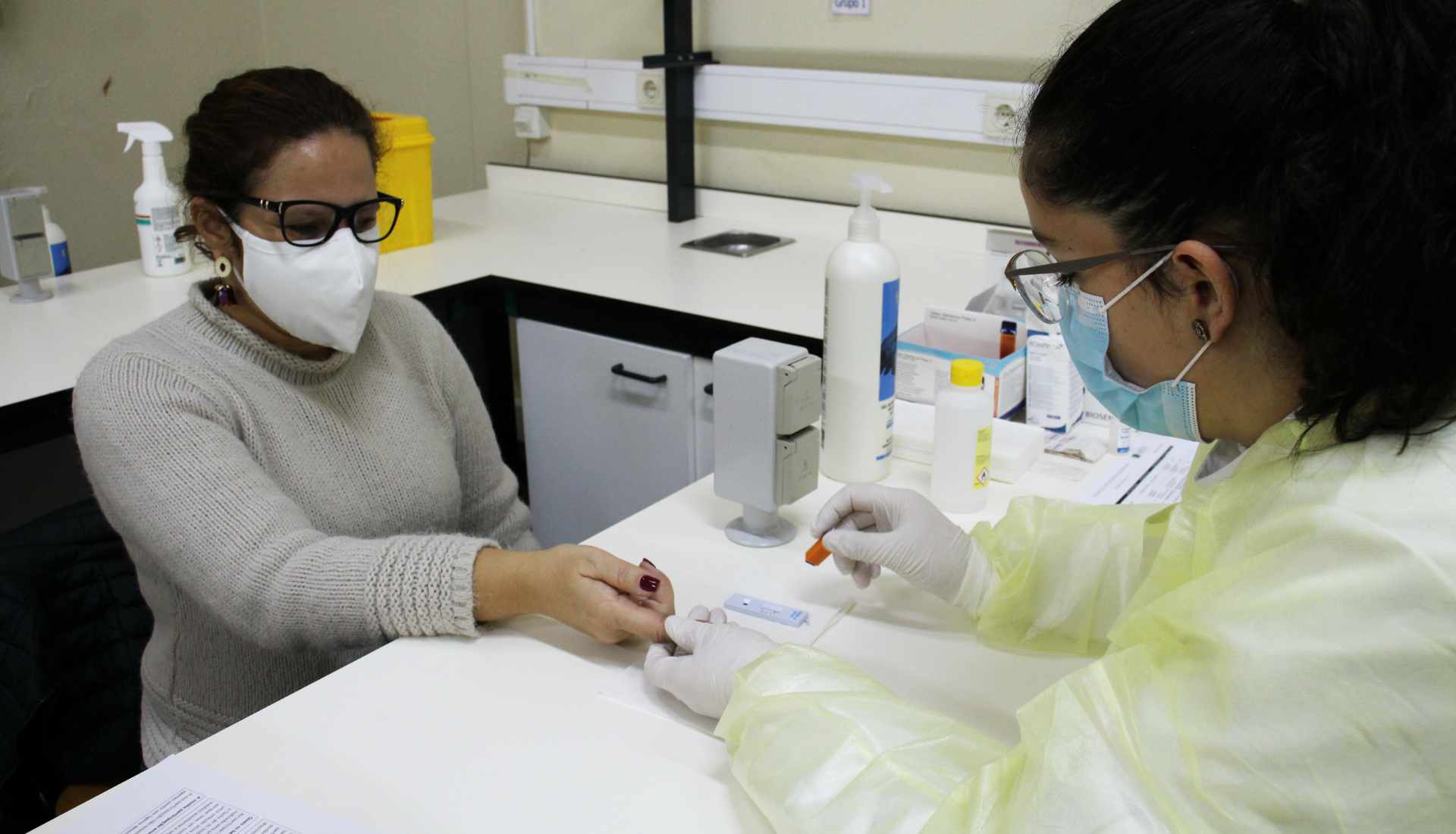The first results of the serological testing programme promoted by U.Porto and carried out by the Instituto de Saúde Pública da Universidade do Porto (ISPUP), between September 24 and December 15, included 6512 students from the different degree levels of the University, and show that almost 10% (634) have IgM or IgG antibodies for the SARS-CoV-2 virus, which causes COVID-19.
The testing program, which is still ongoing, also concluded that almost 9% (558) have IgM antibodies – the first antibodies to be produced by the body, as soon as there is infection – and that nearly 6% (380) have IgG antibodies for the SARS-CoV-2 virus. IgG are the longest-lasting antibodies, they begin to be produced after the initial immune response, which are made by IgM antibodies.
The prevalence of IgG antibodies was higher among males (7.1%) than females (5.3%). Overall, 1.4% of students (91) we found that have a previous history of SARS-CoV-2 infection.
More than half of the students tested were aged between 20 and 24 years (54.5%), but the prevalence of IgM or IgG antibodies was higher among those aged 30 to 34 years and among individuals over 40 years of age – 13.5% and 16.1%, respectively. Accordingly, the history of previous diagnosis of infection was also higher in these age groups.
International students with more antibodies
More than half of the students tested live in their usual family home and 9.6% are international students. The remaining 33.7% are from other areas of Portugal living away from home.
The prevalence of IgM or IgG antibodies was much higher among international students (18.1%). Among students living in their usual family home, 10.4% had antibodies, while 8.8% of other Portuguese students had antibodies.
Likewise, the proportion of those who reported a previous diagnosis of infection was higher among international students (3.8%) compared to those who live at home (1.2%) and other Portuguese students (1.0%).
Among the 878 (13.5%) students who had contact with confirmed COVID-19 cases, the prevalence of antibodies was 20.5%, a percentage higher than that of those who had no contact (8.0%).
The prevalence of antibodies also increased with the presence of symptoms since the beginning of the academic year: 20.1% among symptomatic patients (with loss of smell or taste, or with three more of the following symptoms: cough, dyspnea, sore throat, headache, vomiting or nausea, diarrhea, fatigue, muscle pain, joint pain or fever); 10.3% among paucisymptomatic patients (with one or two of the previous symptoms and without loss of smell or taste); and 7.5% among asymptomatic patients.
Among those with a previous diagnosis of SARS-CoV-2 infection, the prevalence of IgM or IgG antibodies was 86.8%. Among those who took the test, but did not have a diagnosis, the prevalence was 10.7%, and 8.1% for those who have never been tested.
Antibody presence decreased with time
The presence of antibodies decreased with the increase in time since diagnosis, being 76.9% among those diagnosed more recently, between two to five months, and 68.4% among those diagnosed over six months before.
Of the 91 (1.4%) students who were diagnosed with SARS-CoV-2, more than half were diagnosed in October. The distribution of months of diagnosis of the infection shows an increase in cases starting in August, in line with the observed in the rest of the country.
About the student serological testing program
The serological testing program for students at U.Porto aimed to inform about a possible previous contact with the SARS-CoV-2 virus – which causes COVID-19 – determined by the presence of IgM or IgG antibodies.
In addition to the tests offered to students, U.Porto also promoted a testing program for University workers, whose second phase is currently underway.
Image: All Rights Reserved



